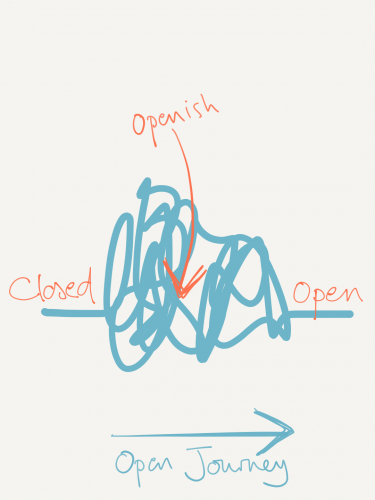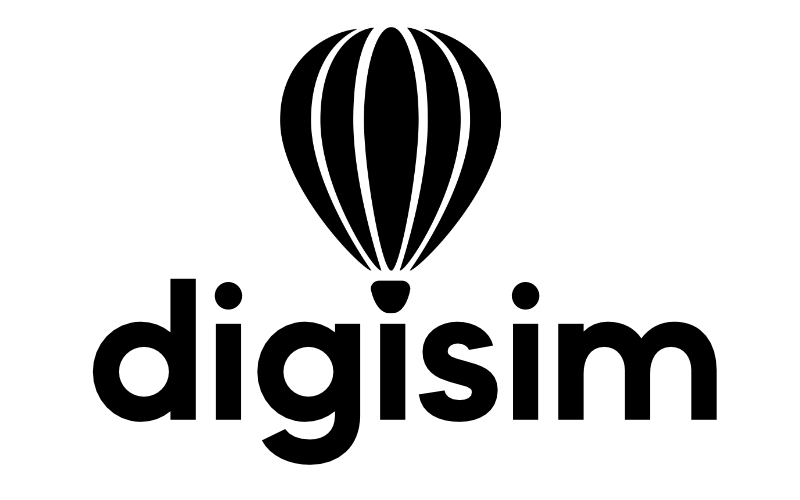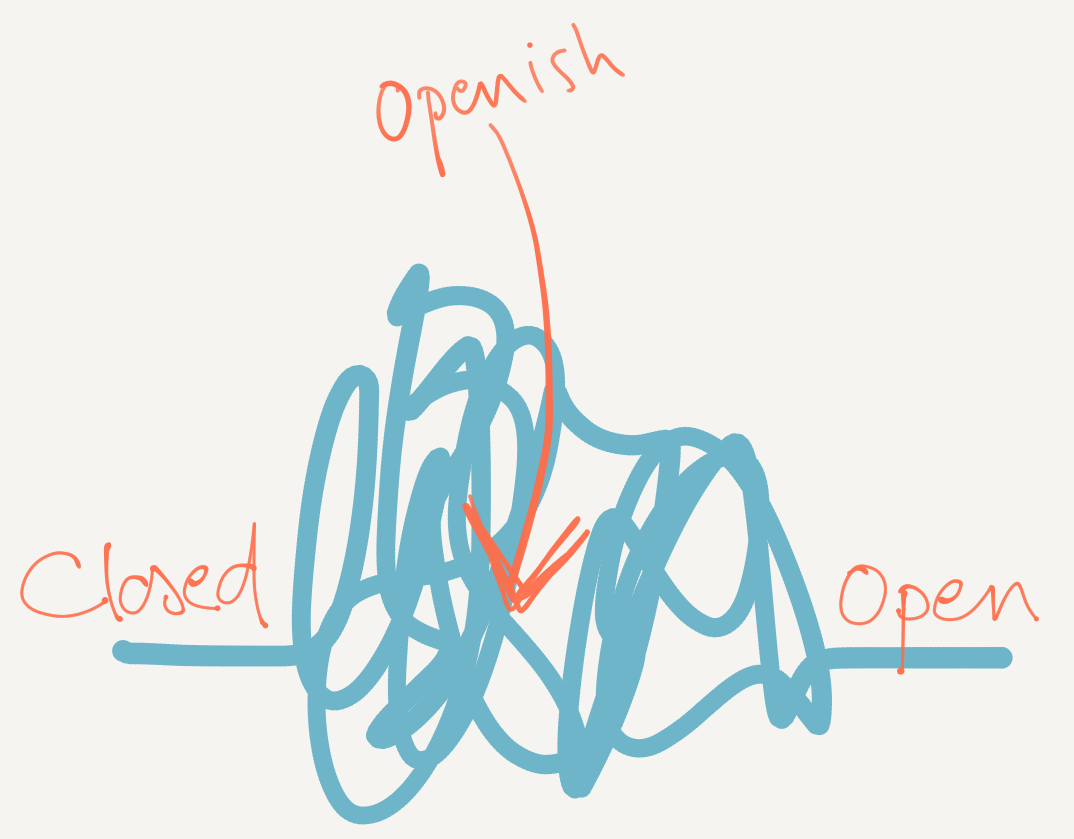What better way to avoid writing up a research paper than writing blog post instead! As I head away from Edinburgh and the wonder that was #oer16 and the wonder that is #oerConf I will try to sum up the overarching theme for me from the last 2 days.
Having been involved in all of the OER Conferences (starting in Cambridge 2010) I feel like it’s evolved into something quite different from where is started (and that is a good thing in case you were wondering). What started out as a conference mostly about “resources” has become a conference where we explore what it means to be open.
Catherine Cronin set the scene for us (slide 15 is a good one) with the “considerations” and “interpretations” of open.
As “openness” has matured we have rightly expanded our understanding of it. Catherine is one of a few researchers who are now pursuing PhD’s in the study of open, an indication of our need to understand it in more depth (and going beyond resources).
In her keynote Emma Smith eloquently presented to us her own “open journey” and in particular the use of iTunesU as a platform for openly sharing her undergraduate lectures from the University of Oxford. With over 20 million downloads there is no denying the impact of such an endeavour, but some in the open community may would argue that iTunesU is nowhere near being open! (although it should be noted that all of the podcasts are available at https://podcasts.ox.ac.uk under open license but interestingly Emma didn’t focus on this in her presentation).
John Scully in his Keynote then provided an open journey perspective from the National Library of Scotland. In this journey he explored the role of a national library in archiving important (and some not so important) items digitally. Again this is a different interpretation of “open”, but still one which deserves to be identified as part of the open continuum.
My suggestion is that we should allow “open” to be a broad term and a continuum along which we progress. However, we should endeavour to describe all kinds of openness so that we can understand the relationships between them and the challenges associated with each.
The morning keynote today (Day 2) was the first time I have had the chance to hear Jim Groom talk face-to-face (and I wasn’t disappointed). The only way I can describe Jim’s work is that it is working “beyond open”. What I mean by this is that although we may have an open philosophy, we are still confined by restrictions (e.g. CC licenses), whereas Jim sees the web as one big openly shared set of content to be reshuffled, reshaped and reshared by everyone connected to it and living within it.
In Jim’s own words:
I don’t really like OER
This is surely because in Jim’s eyes OER are still confined & restricted? Confined to “repositories” and restricted by “license”. Jim’s nirvana challenges many conventions (not least the notions of copyright & content ownership) but it is important that we do reshape and re-challenge ourselves as a community.
Melissa Highton eloquently brought the conference to a close by bringing us back to what it means to be “open” in an institutional context. Whilst it may be argued that Jim Groom is challenging much of what Melissa discussed it is so refreshing to hear an IT Director talking about funding open as part of IT finance – not something I have seen/heard before.
So what we have experienced over the past 2 days is that our definition of “open” is expanding, not contracting and that we each have our own path to take on this open journey. We should also recognise that each of us will position ourselves in different places along the continuum, with Jim existing beyond it ?
What we can be sure of is that it will be messy, but we should perhaps not criticise those who do not make it to the nirvana, but celebrate their open achievements, not matter where they end up on the journey.





20 Responses
Thanks Simon and for putting up with some freaky thinking on Monday! I think Jim Groom is the take away in terms of finding evidence about the actuality of living in the wild open. This man knows about open and has done for along time while the rest of us are doing our best to make it respectable enough to our respective universities. That is not intended as a slight on us – the OER community is wonderful and much needed. But we need to see beyond resources. You have used the phrase ‘being open’ That’s right – it’s about Being Open.
Thanks Andrew. I agree that Jim certainly does know about Open and that we sometimes have to translate that vision into one which “fits” into a UK University environment. We also have to contend with differing copyright laws in the UK (The U.S. Fair use laws are far more generous than the U.K. fair dealing laws). You are absolutely correct that we need to move beyond resources. In fact I suggest we rebrand OER as meaning “Open Education Re-Imagined”.
You and others might be interested in ‘Open Education: A study in disruption’ from the Radical Open Access people at Coventry University. https://curve.coventry.ac.uk/open/file/c04530ce-d16a-46ca-b359-a905195a76cb/1/Open%20education.pdf
I’ve just been following a few links following my conversation with Shaun Hides at OER16. This is connecting strongly with some of the things I’ve been thinking.
So, the OER16 Open Culture Conference has been and gone and what an experience it was! Co-chairing OER16 with my inspiring colleague Melissa Highton was an enormously rewarding experience and I owe a huge debt of thanks to everyone who volunteered their time, effort and creativity to make the conference such a success. In particular I’d like to thank our keynotes, Catherine Cronin, Emma Smith, John Scally, Jim Groom and Melissa Highton for their inspiring and thought provoking talks and, of course, the ALT team for supporting the conference and ensuring everything ran like clockwork. I can highly recommend charing an ALT conference if you’re ever thinking about it!
It’s too soon after the event for me to gather my thoughts and attempt to provide any kind of coherent overview so here’s a round up of the conference outputs and some of my personal highlights in lieu of something more considered.
Me & Ada LEGO Lovelace by Stuart Cromar
OER16 Open Culture: oer16.oerconf.org, the conference blog with links to programme, presentations, livestreams, etc.
ALT youtube channel: http://www.youtube.com/user/ClipsFromALT, videos of welcome, introductions, keynotes and sessions.
Radio EDUtalk: http://www.edutalk.info/category/oer16/, interviews with conference participants and audio from keynotes.
Francesbell’s Blog: francesbell.wordpress.com/tag/oer16/, a wonderful series of reflective posts from blogger Frances Bell.
Open is messy but that’s okay: blog.digisim.uk/conferences/open-is-messy-thats-ok-oer16/, a lovely blog post from Simon Thomson.
Wikimedia UK: wikimedia.org.uk/wiki/Open_Educational_Resources_conference, round up of Wikimedia UK’s activities at OER16.
OER16: Empowered Openness: marendeepwell.wordpress.com/2016/04/21/oer16/, reflections from ALT’s Maren Deepwell.
Anna Page’s photographs, http://www.flickr.com/photos/acpage/sets/72157665077094714/
And of course, my personal twitter highlight of the conference….
Taxi ChicOER16 Co-Chairs Melissa Highton & Lorna Campbellby Catherine Cronin, CC BY SA
So now it’s time to pass the torch over to the fabulous Josie Fraser and Alek Tarkowski, two of my favourite people working in open education today, who’ll be co-chairing OER17: The Politics of Open. It’ll be awesome!
Share this:TwitterFacebookGoogleLike this:Like Loading…
Related
CC BY-ND Bryan Mathers http://bryanmmathers.com/participatory-culture/
..
I’ve been thinking about OER16 since the conference ended just over four weeks ago. I’m reflecting now not just through the lens of those few weeks but also the other conferences and workshops which I attended immediately afterward, namely the C-DELTA project in Cape Town and the Networked Learning #NLC2016 doctoral consortium and conference in Lancaster. It has felt like a few months’ worth of sharing and discussing research and engaging in wonderful conversations condensed into a few short weeks – a great privilege. So, late is this may be, I want to share a few notes and impressions from these events, beginning with OER16.
As several others have already written, and beautifully (collection of blog posts below), OER16 was enjoyable and tremendously thought provoking. I’ve long considered myself an open educator and I’m currently doing research in the area of open educational practices, so this is a community in which I feel at home. My main takeaway from the conference was that OER16, and the open education community more generally, is growing, changing and evolving. There was a strong strand of critical research shared and enthusiastically discussed both during and after the conference.
My keynote: “If open is the answer what is the question?”
I was honoured to be asked to give one of the conference keynotes by the co-chairs, Lorna Campbell and Melissa Highton. I sometimes struggle with the idea of conference keynotes. I know that plenary speakers can be a powerful (and sometimes provocative) way of exploring conference themes. Yet I find myself wrestling with ways of providing that focus while also including other voices and perspectives, and including space for conversation and discussion. My approach for OER16 was to share my thoughts and questions in a blog post well before the event, inviting ideas, feedback and discussion. That post If ‘open’ is the answer, what is the question? led to several weeks of discussion before the conference; I shared and discussed this in the keynote. During the keynote I focused on 4 key ideas:
Noting the vital connection between networked participatory culture and openness, using as an example Ireland’s 2015 Marriage Equality referendum.
Exploring definitions, interpretations and levels of openness in education, highlighting openness as a complex phenomenon (technical, social, cultural and economic).
Arguing for the importance of a critical and reflexive approach to openness. Openness can help to address issues of access and inequality but it can also bias those already privileged. I highlighted work by Richard Edwards (2015), sava singh (2015), Laura Czerniewicz (2014), Cheryl Hodgkinson-Williams (2014) and others who are doing critical research – including several people who also presented their work at OER16. (Full keynote bibliography included at end of post.)
Sharing work from my own PhD research. In my study of open educational practices in higher education, openness is characterised as individual, complex and contextual. For academic staff openness is: (i) closely linked with identity, (ii) negotiated at multiple levels and continually, and (iii) both a personal and collective decision.
Here is a Storify of tweets from the keynote and my presentation slides:
..
…and many thanks to Beck Pitt for her amazing visual notes!
CC BY Beck Pitt (Flickr)
Presentations, workshops & keynotes
There were many, many dilemmas in choosing sessions to attend at OER16 – the programme was rich and varied. A few highlights for me were:
sava singh discussed her PhD research in a session entitled: Open Wounds: The Myth of Open as a Panacea – this work also is explored in some depth in sava’s recent blog post The Fallacy of Open. sava reminded us of some blunt truths about our own privilege as social media users, e.g. being an early adopter is a privilege; being able to complain about how Twitter “used to be” is a privilege. She highlighted the tension between the discourse of open access and reputational politics in academia. There is a growing ‘be open’ diktat in academia (e.g. for many PhD students) yet for individuals who are marginalised within higher education in various ways, e.g. by race, gender, precarious or otherwise low employment status, etc., sharing work and being open can be risky. sava reminded us to ask ourselves important questions about risk, power, inequality and surveillance when advocating openness.
Viv Rolfe and Dave Kernohan presented Open education: “Runnin’ with the Devil” (their presentation begins at 41 minutes), asking whether the open education community is being critical enough in its evaluation of its progress. Viv discussed her systematic review of studies describing the impact of open education on learning and teaching. Then Dave turned the focus to blogs – “I’ve heard it said that all the good stuff is published in blogs” – talking us through his process of generating semantic blog citation metrics. This is fascinating work which I hope Viv and Dave will continue to develop.
Sheila MacNeill and Keith Smyth shared the results of their ongoing collaboration in two detailed blog posts before the conference: Reframing Open in the context of the digital university – part 1 and part 2. In their work, Sheila and Keith use of the concept of Third Space (neutral, collective, inclusive spaces) to theorise the Digital University. I’m particularly intrigued by the concept of digitally distributed curriculum which is explored in the blog posts, and look forward to watching this work as it develops.
I participated in a lively workshop facilitated by Christian Friedrich and Shaun Hides entitled: Are we openness ready? Towards an Open Learning Scale. The workshop built on work by FemTechNet and Liz Losh, which used rapid feminist prototyping to identify “drivers of openness”. Christian and Shaun began by sharing the thinking behind the six drivers of openness; then we identified three to develop further in a “maker-style” workshop – fun and very thought-provoking.
I felt honoured to attend the session in which Margaret Korosec described the amazing Stolen Lives project. Stolen Lives is a collaborative open educational project with the aim of increasing awareness of modern-day slavery – as Margaret described “using OER to combat modern slavery”. Facts: 35 million people are enslaved worldwide and there are 13,000 people in forced labour in the UK today. During two days in which inequality and social justice were invoked by many, this work is a touchstone for what is possible. This project deserves to be shared widely.
Finally, if you are at all interested in openness, OER and/or OEP, please do check out the summaries (listed below) and videos of the wonderful keynotes by Emma Smith, John Scally, Jim Groom and Melissa Highton:
Emma Smith, a Shakespearean scholar, spoke honestly and humbly about her ‘open’ journey. Beginning with the decision to record audio podcasts of her lectures for the sake of students who might miss a lecture, she moved on to the realisation that releasing her lectures openly had “completely transformed my teaching”. Emma’s CC-licensed podcasts “Approaching Shakespeare” are available on iTunes and on the University of Oxford website.
John Scally, National Librarian at the National Library of Scotland (NLS) spoke about the digital strategy of the library and the challenge of balancing tensions between preservation and access. John believes that the library needs to go further than widening access, however: it needs to promote equity.
After years of quoting Jim Groom in my own presentations, I finally got to hear him in person (and meet his lovely family who had travelled to Scotland with him). As Jim describes in his own blog, he brought us on the magical, mystery tour that is DS106. He lifted the focus from OER and even OEP/open pedagogy to open technical infrastructure. The keynote was an awesome summary of work done by Jim and a great many people whom he mentioned throughout – including DS106 students and participants. As Jim reminded us “most of the work that students have done [in DS106] is still there”.
Finally, conference co-chair Melissa Highton concluded the conference on a high note, speaking in her capacity as Director of Learning, Teaching and Web Services at the University of Edinburgh. In her thoughtful and inspiring keynote, Melissa reminded us what it means to be open in an institutional context, highlighting the university’s OER policy: http://open.ed.ac.uk. She used the concept of ‘copyright debt’, analogous to technical debt, to make a strong case for open. Melissa’s take home message: “Not being open is a risk and not being open costs us money.”
OER16 blog posts
#OER16: Empowered openness by Maren Deepwell
#OER16: Open Culture conference overview by Lorna Campbell
#OER16 – the friendly conference by Frances Bell
Radio EDUtalk at #OER16 by John Johnson
Several posts on OER16 conference blog
Exploring openness at #OER16 by Nicole Ingerson
Open is messy & that’s OK by Simon Thomson
Literally [Ear] Buddies: Virtually Connecting at #OER16 by Alan Levine
Challenging openness & innovation – takeaways from #OER16 & #OLCInnovate by Maha Bali
Virtually Connecting
…and last but not least Radio EduTalk – a wonderful series of radio interviews produced by John Johnson
(apologies to anyone whose posts I may have missed!)
…and finally
Many thanks to Lorna Campbell and Melissa Highton, wonderful co-chairs of the conference and inspiring women in tech. Thanks also to the wonderful ALT team who supported us – before, during and after the event. Special thanks to Martin Hawksey and John Johnson, an incredible team; through their efforts the conference was made open via live audio and video streams, video recordings and audio interviews. And thanks to all who shared their work and participated in the conference; you made the two days very special…
CC BY-SA catherinecronin (Flickr)
..Bibliography (from my keynote)
Beetham, Helen (2015) Revisiting digital capability for 2015. Jisc.
Beetham, Helen, I. Falconer, L. McGill, A. Littlejohn (2012) Open Practices: Briefing Paper. Jisc.
Cottom, Tressie McMillan (2015) Open and Accessible to What and for Whom? Blog.
Czerniewicz, L. (2015) Confronting inequitable power dynamics of global knowledge production and exchange. Water Wheel 14(5), pp. 26-28.
Edwards, Richard (2015) Knowledge infrastructures and the inscrutability of openness in education. Learning, Media and Technology 40(3), pp. 251-264.
Ehlers, U.-D. (2011). Extending the territory: From open educational resources to open educational practices. Journal of Open, Flexible, and Distance Learning, 15(2), pp. 1–10.
Hodgkinson-Williams, C. (2014) Degrees of ease: Adoption of OER, open textbooks and MOOCs in the Global South. OER Asia Symposium.
Jenkins, Henry, et al. (2007). Confronting the Challenges of Participatory Culture: Media Education for the 21st Century. Chicago: MacArthur Foundation.
Jenkins, Henry, Mizuko Ito & danah boyd (2016) Participatory Culture in a Networked Era. Cambridge: Polity Press.
National Forum for Teaching & Learning in Higher Education (2015) Developing a Roadmap for Building Digital Capacity. National Forum Report.
sing, sava saheli (2015) The Fallacy of “Open”. savasavasava blog.
Stewart, Bonnie (2015) Open to influence: What counts as academic influence in scholarly networked Twitter participation. Learning, Media and Technology 40(3), pp. 1-23.
Veletsianos, George & Kimmons, Royce (2012) Networked participatory scholarship: Emergent techno-cultural pressures toward open and digital scholarship in online networks. Computers & Education, 58(2), pp. 766–774.
Share this:Click to share on Twitter (Opens in new window)Share on Facebook (Opens in new window)Click to share on LinkedIn (Opens in new window)Click to share on Google+ (Opens in new window)Click to share on Pinterest (Opens in new window)Click to share on Reddit (Opens in new window)Click to email (Opens in new window)Click to print (Opens in new window)Like this:Like Loading…